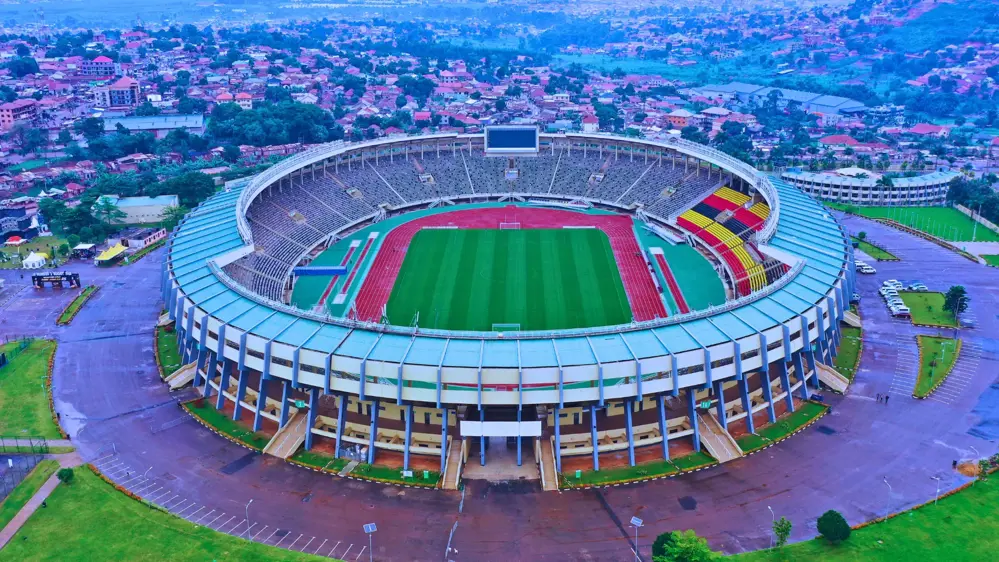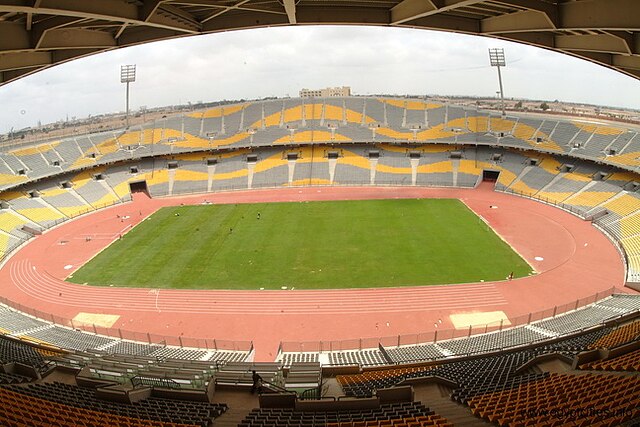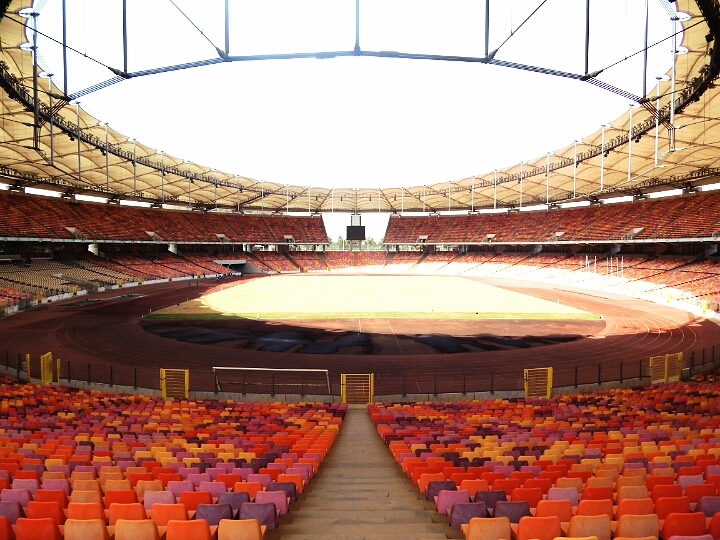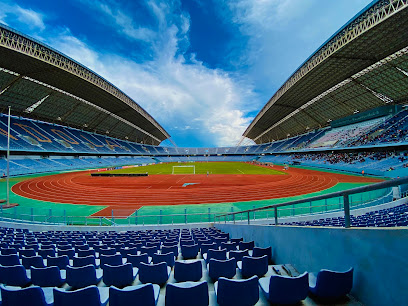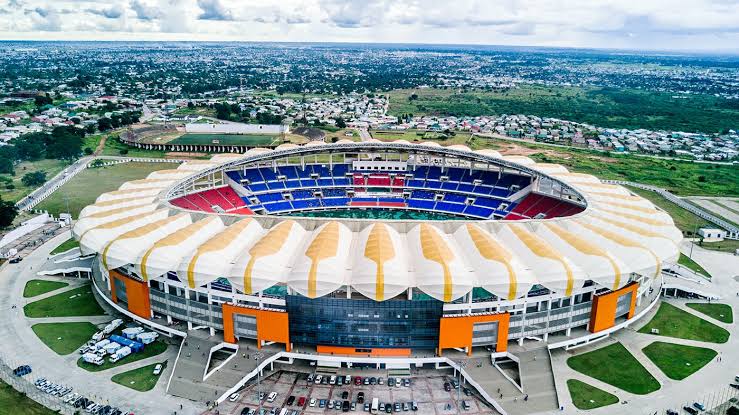Princess Magogo Stadium, located in KwaMashu north of Durban, is one of KwaZulu-Natal’s most important community sports facilities. The multi-purpose venue has hosted football matches, training sessions, and community events, and gained national attention when it was upgraded to serve as a training base for the 2010 FIFA World Cup.
Its story combines sport, culture, and township pride, making it a unique landmark in South Africa’s football landscape.
Location and Accessibility
Princess Magogo Stadium is situated on Mkhiwane Road in KwaMashu within the eThekwini Metropolitan Municipality. Its location in one of Durban’s largest townships gives it both symbolic and practical significance.
The venue is easily accessible for local supporters and visiting teams, with transport links including minibus taxis and main roads leading into central Durban. Its township setting has helped the stadium become a vital hub for grassroots football and a focal point for community gatherings.
Capacity and Facilities
The stadium holds around 12,000 spectators, making it ideal for league fixtures, regional tournaments, and youth competitions. In preparation for the 2010 FIFA World Cup, Princess Magogo Stadium underwent extensive renovations costing approximately R93 million.
The upgrades included pitch improvements, modern drainage, enhanced seating, and improved facilities for both players and spectators. These investments raised the stadium to FIFA standards while ensuring it remained a functional community facility.
Tenant Clubs and Football Role
Over the years, Princess Magogo Stadium has hosted matches for a range of professional and semi-professional teams. It has been used in the National First Division, as well as by local clubs and development academies for training and competitive fixtures.
The stadium’s steady calendar of games and events makes it an important contributor to Durban’s football culture, offering a reliable home ground for township teams and an accessible venue for regional tournaments.
Community and Youth Development
Beyond professional football, Princess Magogo Stadium plays a major role in community development. It supports youth programs and grassroots tournaments that provide opportunities for young players to develop skills and engage in structured sport.
Community clubs benefit from access to quality playing facilities that would otherwise be limited in township settings. Training sessions, coaching clinics, and school competitions regularly take place at the venue, reinforcing its role as a development hub.
Matchday Experience
Attending a match at Princess Magogo Stadium offers a unique township football experience. With a compact capacity of 12,000, spectators are close to the action, creating a lively and intimate atmosphere. The upgraded pitch and seating enhance viewing comfort, while the local setting ensures strong turnout from nearby residents.
On matchdays, local vendors set up around the stadium, contributing to the vibrant atmosphere. Public transport options make it accessible, though fans are advised to plan ahead due to traffic congestion during peak times.
Stadium Design and Playing Surface
The stadium features a natural grass pitch, with improvements made to drainage and surface quality during the 2009 refurbishment. While it does not boast the grand design of larger city stadiums, its simple structure with a main stand and compact layout ensures fans have good sightlines.
The playing surface is reliable for matches throughout the year, making it suitable for both professional and community-level football.
Cultural Significance and Namesake
The stadium is named after Princess Constance Magogo kaDinizulu, a Zulu cultural figure known for her musical contributions and preservation of cultural traditions. Naming the venue after Princess Magogo symbolizes the connection between sport and culture in KwaZulu-Natal, reinforcing the pride of the KwaMashu community.
The naming also honors women’s contributions to cultural heritage, linking football infrastructure with broader social identity.
Memorable Moments
The most notable chapter in the stadium’s history came when it served as a training venue during the 2010 FIFA World Cup. Hosting international teams for practice sessions gave Princess Magogo Stadium global recognition, even though it did not host tournament matches.
This milestone highlighted how township-based infrastructure could contribute to a global sporting event while leaving a lasting legacy for local communities.
Challenges and Future Opportunities
Like many township facilities, Princess Magogo Stadium faces challenges related to long-term maintenance and funding. Sustaining investment in lighting, security, and spectator amenities is necessary to keep the venue competitive and attractive for higher-level fixtures.
At the same time, opportunities exist to diversify its use beyond football. Hosting cultural festivals, concerts, and civic events could strengthen its financial sustainability and increase community engagement.
Role in Durban’s Sporting Landscape
Durban is home to major venues such as Moses Mabhida Stadium, which hosts international matches and large-scale concerts. Princess Magogo Stadium complements these by serving the community and township level.
It bridges grassroots sport and professional football, ensuring that development pathways are available for young players while still contributing to Durban’s broader sporting ecosystem.
Visiting Princess Magogo Stadium
Visitors to the stadium can expect an authentic community football experience. It is advisable to plan transport in advance, especially on matchdays. Local taxi routes serve the area, and driving is also an option, though parking may be limited during larger events.
Fixture details are usually announced by local clubs and through the eThekwini municipality. For those interested in youth programs or community initiatives, direct contact with local clubs or authorities can provide schedules and opportunities for involvement.
Conclusion
Princess Magogo Stadium in Durban, South Africa, is more than a football ground. It is a community anchor, a cultural landmark, and a developmental hub for future generations.
Its upgrades for the 2010 World Cup gave it international relevance, but its lasting value lies in serving the people of KwaMashu.
With continued investment and creative use, the stadium can remain a vital part of Durban’s sporting and cultural identity for years to come.
